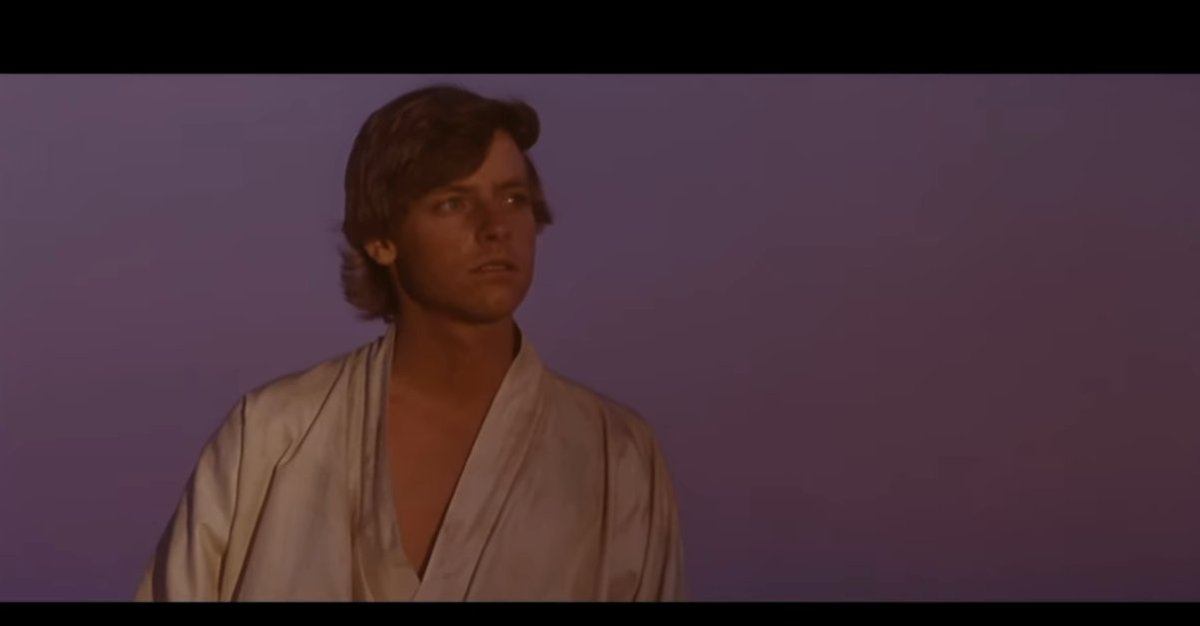Writing a snappy blog intro can be excruciating work.
But it doesn't have to be.
Use this cheat sheet of 7 creative intro templates
(+ live examples from professional content writers:) 🧵
But it doesn't have to be.
Use this cheat sheet of 7 creative intro templates
(+ live examples from professional content writers:) 🧵
1. Curiosity Gap - Context - What's Next?
Great for: Anything in first person
Author: @kat_boogaard
Open with an intriguing, out-of-context image. Do nothing else. Just pull the pin and toss in the grenade.
THEN do context.
Here, Kat starts with the image of $300k:
Great for: Anything in first person
Author: @kat_boogaard
Open with an intriguing, out-of-context image. Do nothing else. Just pull the pin and toss in the grenade.
THEN do context.
Here, Kat starts with the image of $300k:

2. Relatable detail - State of play - Poke the pain
Great for: Everyday tips and advice
Author: @wordswithalyssa
This one sucks you in with a light, relatable detail, then pulls the wool from under you.
"Hey, [relatable detail]? Well, here's why that's bad."
Sneaky, sneaky.
Great for: Everyday tips and advice
Author: @wordswithalyssa
This one sucks you in with a light, relatable detail, then pulls the wool from under you.
"Hey, [relatable detail]? Well, here's why that's bad."
Sneaky, sneaky.
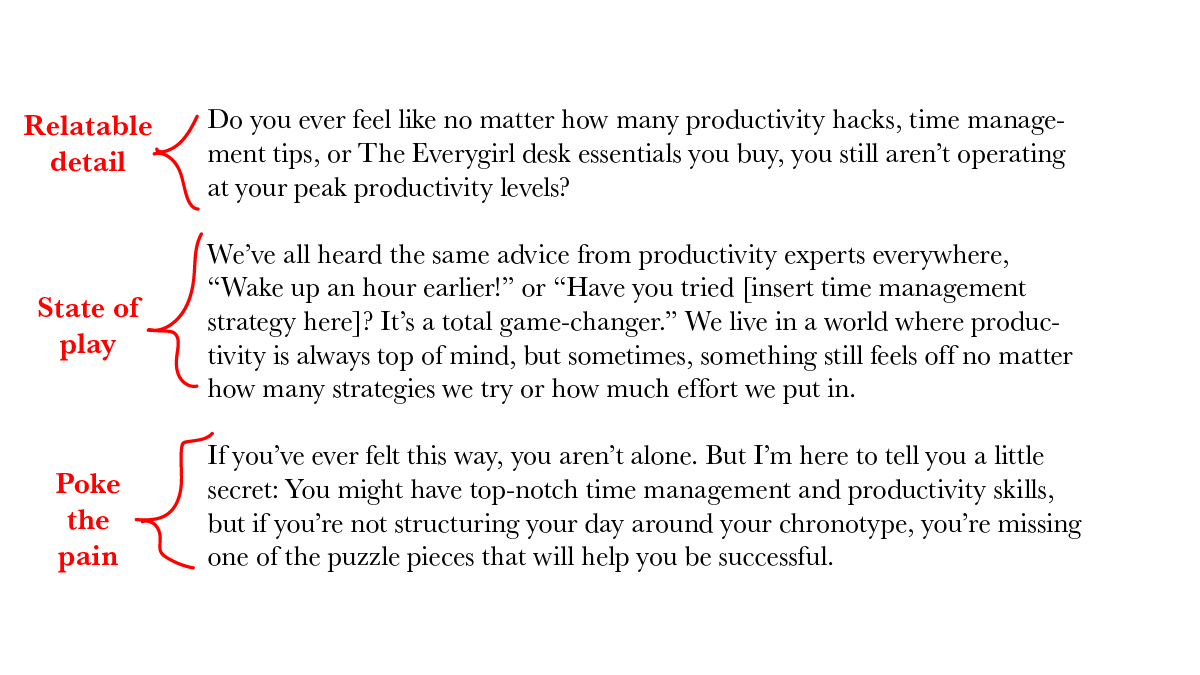
3. Zing! - Context - State of play
Great for: Voice-driven insights
Author: @ashleyrcummings
Love Ashley's sense of humor, and the literal Leo "Zing!" here is an instant attention grab.
But worth noting: it doesn't dwell.
One sentence later, we're on to the meat.
Great for: Voice-driven insights
Author: @ashleyrcummings
Love Ashley's sense of humor, and the literal Leo "Zing!" here is an instant attention grab.
But worth noting: it doesn't dwell.
One sentence later, we're on to the meat.

4. 2nd Person POV - Pain poke - Transition to solution
Great for: Advice, problem-solving
Author: @rochi_zalani
I love the artfulness of Rochi's pain poke.
The "Monday-Friday" thruline is great.
Included a portion of the main body so you can see how it flows:
Great for: Advice, problem-solving
Author: @rochi_zalani
I love the artfulness of Rochi's pain poke.
The "Monday-Friday" thruline is great.
Included a portion of the main body so you can see how it flows:
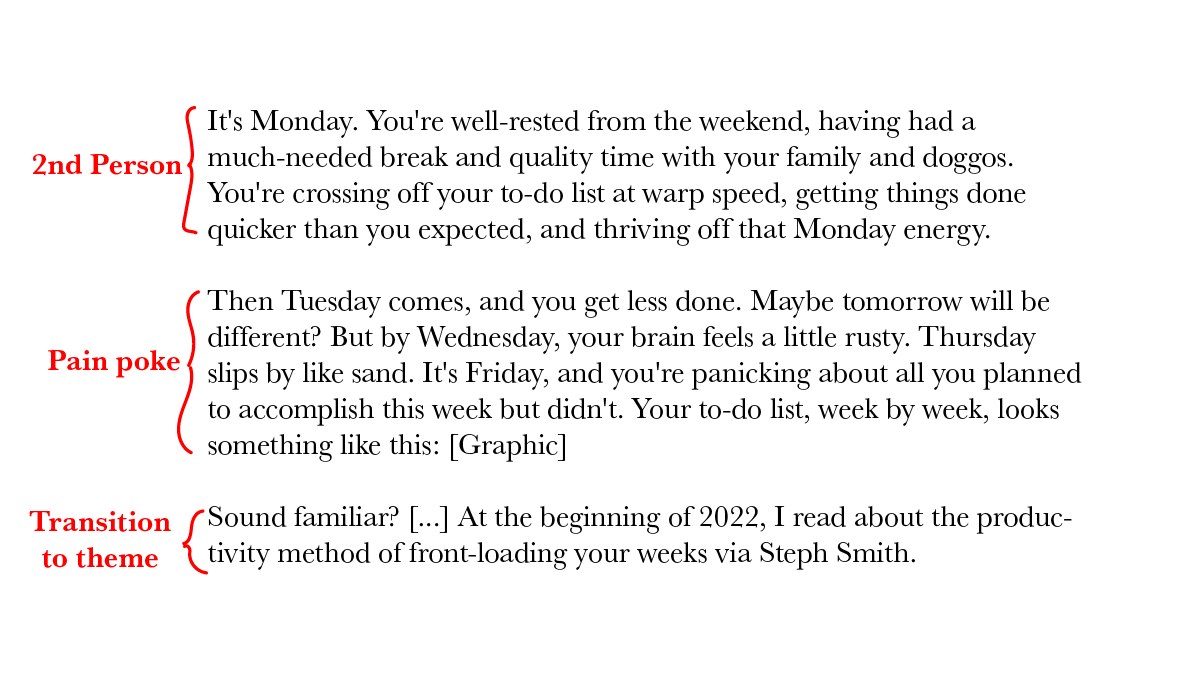
5. State of play / "But" - Development - Benefits
Great for: "Thesis" posts, persuasion
Author: @sam_milbrath
That first paragraph is so efficient, I included two elements: the basic state of play, along with a counter-point / "but" sentence.
Result:
Instant cut-to-chase.
Great for: "Thesis" posts, persuasion
Author: @sam_milbrath
That first paragraph is so efficient, I included two elements: the basic state of play, along with a counter-point / "but" sentence.
Result:
Instant cut-to-chase.
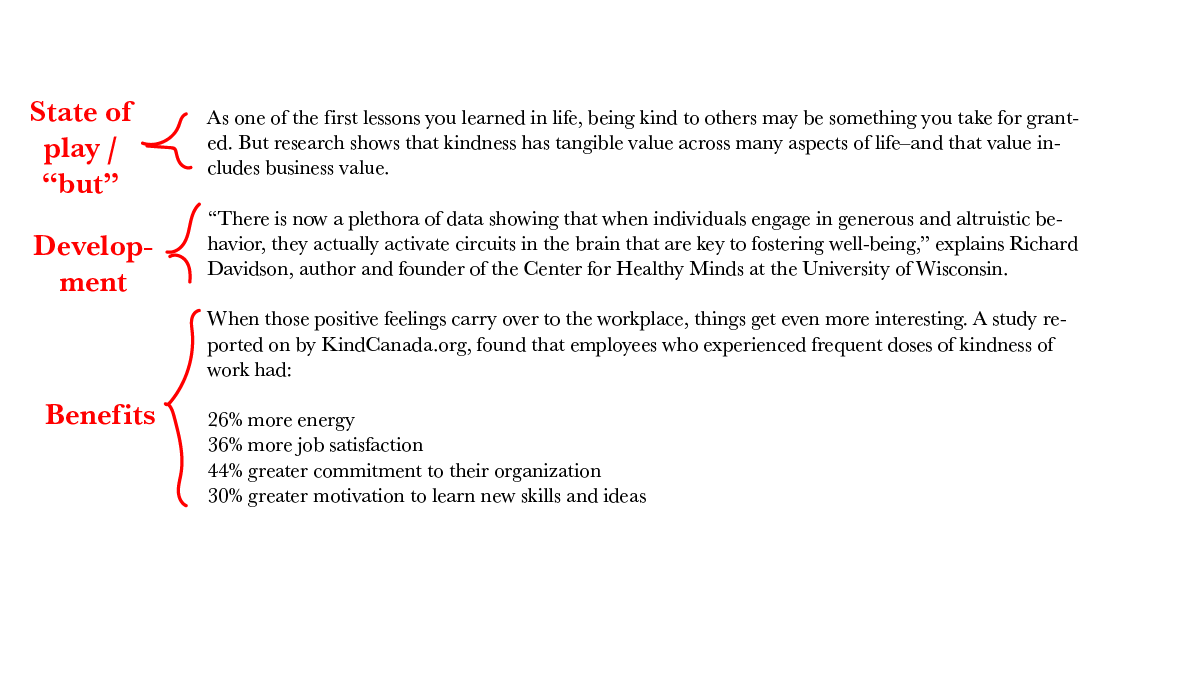
6. Problem - New Paradigm - Solution
Great for: How-to posts & thought leadership
Authors: @ericasmyname & @tomwhtley
Insights into both problem/solution don't only get your hands around the topic, but also demonstrate how much you know BOTH paradigms.
Establish authority.
Great for: How-to posts & thought leadership
Authors: @ericasmyname & @tomwhtley
Insights into both problem/solution don't only get your hands around the topic, but also demonstrate how much you know BOTH paradigms.
Establish authority.
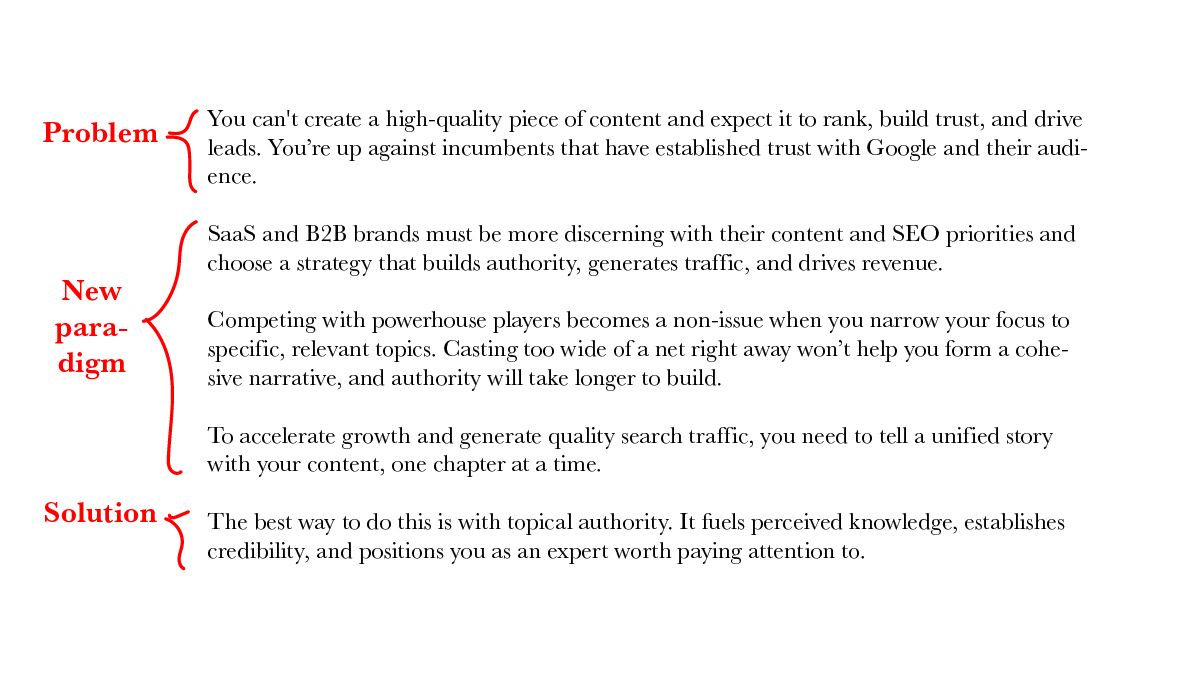
7. The Goods - Development - Benefit
Great for: Counterintuitive advice
Author: Your boy @danielkenitz (hey, it's my thread)
No context, no intrigue, no curiosity gap: just state a unique angle and elaborate.
Upside-down pyramid works best when the idea itself is upside-down.
Great for: Counterintuitive advice
Author: Your boy @danielkenitz (hey, it's my thread)
No context, no intrigue, no curiosity gap: just state a unique angle and elaborate.
Upside-down pyramid works best when the idea itself is upside-down.
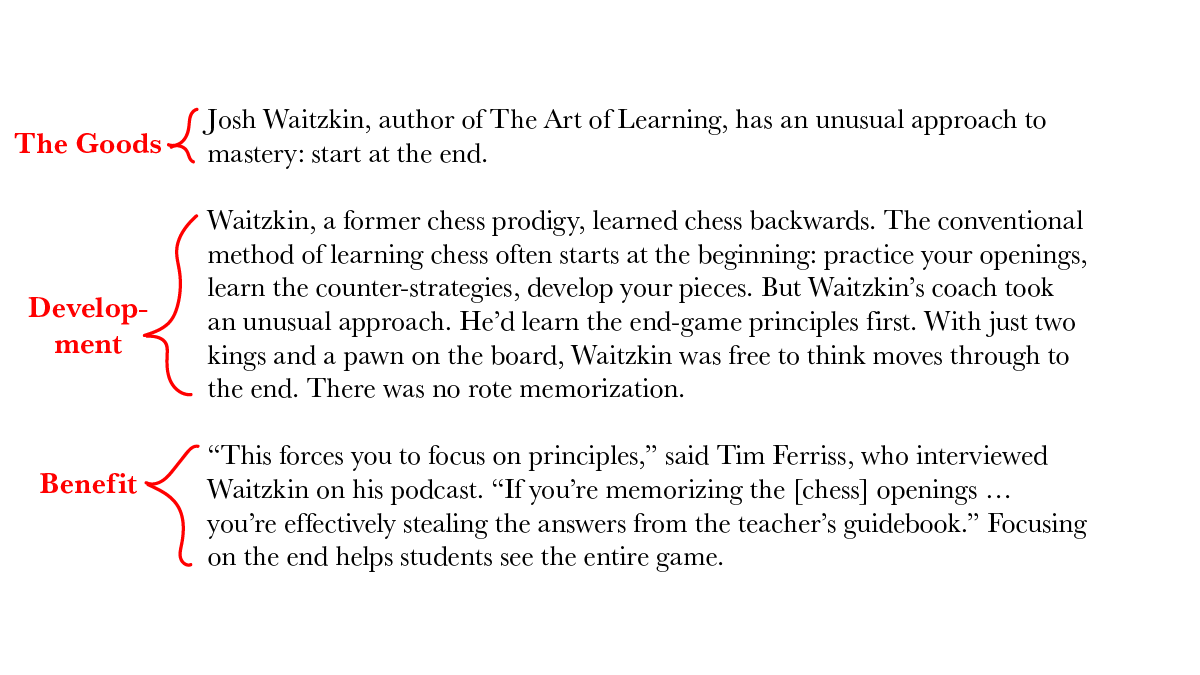
Obviously, this list has a bias towards intros that fit into a tight Twitter window.
AND a bias towards intros that might fit a three-pronged template.
But I find that with enough practice, if I grasp the principles, I learn when to break the rules as well.
So will you.
AND a bias towards intros that might fit a three-pronged template.
But I find that with enough practice, if I grasp the principles, I learn when to break the rules as well.
So will you.
Want more stuff like this in your Twitter feed?
* Follow me @danielkenitz
* Retweet the first tweet below:
* Follow me @danielkenitz
* Retweet the first tweet below:
https://twitter.com/danielkenitz/status/1633853083372384256
If you liked this tweet, I have nothing to sell you.
Follow @DanielKenitz if you want more like it in your feed every day.
Follow @DanielKenitz if you want more like it in your feed every day.
• • •
Missing some Tweet in this thread? You can try to
force a refresh




